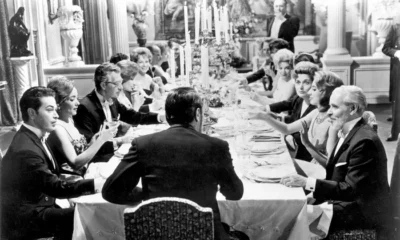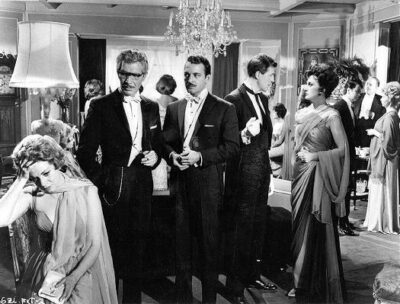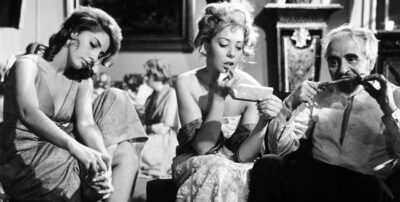
Buñuel, a Spanish-born iconoclast and provocateur, spent most of his career working outside his native country. In 1962, at the age of 62, Bunuel was enjoying international acclaim after being coaxed out of Mexican exile the year before to make ‘Viridiana,’ which was suffused with his characteristic caustic wit and anti-religious sentiment. The film’s notoriety revived his career and placed him at the center of international film culture for the remainder of his career. THE EXTERMINATING ANGEL, made in Mexico, further cemented his credentials as a mordant satirist. The story, written by Buñuel and Luis Alcoriza, deals with a lavish dinner party at the home of wealthy opera patrons in which the upper-class guests find themselves unable to leave after the meal. After a few days a rescue party is organized but the would-be rescuers cannot enter the house, and chaos ensues. During the ordeal the guests find their veneer of civilization slowly stripped away.


THE EXTERMINATING ANGEL premiered at the 1962 Cannes Film Festival and was selected as the opening night entry of the first New York Film Festival the following year. Buñuel was propelled into the most successful phase of his long career, and he followed it with a number of memorable films, ‘Belle de Jour’ (1967), ‘The Discreet Charm of the Bourgeoisie’ (1972), and his final film, ‘That Obscure Object of Desire’ (1977) among them. Later, THE EXTERMINATING ANGEL’s influence extended beyond the screen—in 2016 it was adapted as an opera of the same name by composer Thomas Ades.
